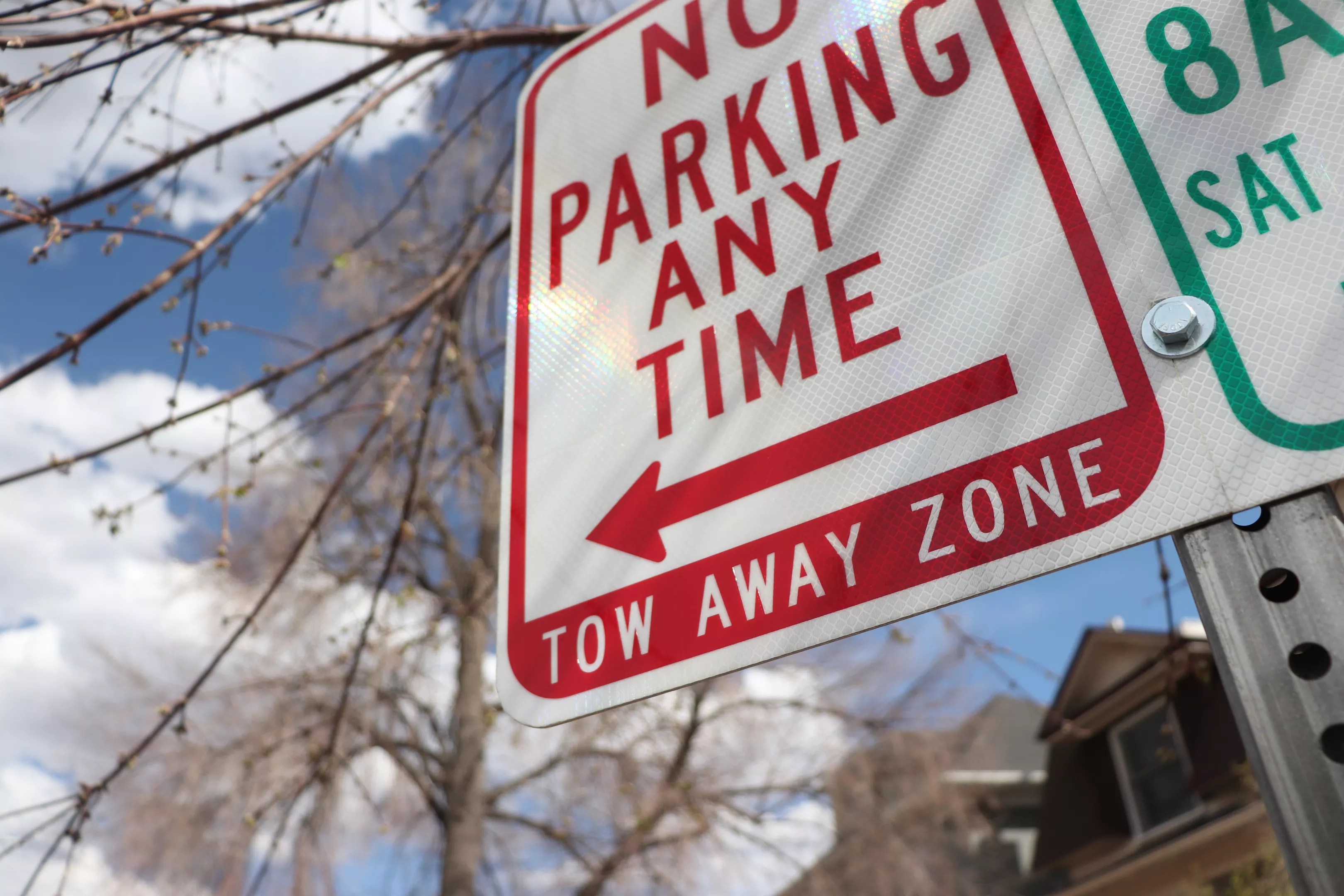
Benjamin Neufeld

Audio By Carbonatix
Local towing companies are pushing back against the Colorado Public Utilities Commission, which is proposing amendments to the rules regulating how the companies can operate as part of a Code of Colorado Regulations revision. According to tow company representatives, the changes would put “basically every towing carrier” at risk of going out of business.
The PUC has proposed the amendments as a means to protect Coloradans from predatory towing practices and companies, but tow reps believe that at least some of the changes represent a major overstep that will ultimately lead to licenses being denied and a noose being placed on how they can operate.
The proposed changes to CCR section 723-6 are in response to the passage of House Bill 22-1314 in the Colorado Legislature last year. The bill, formally titled the “Towing Carrier Nonconsensual Tows,” has often been referred to as Colorado’s “towing bill of rights law.” Most notably, it created a requirement that towing carriers must provide 24 hours’ written notice before towing a vehicle from residential property.
According to the PUC, the law is “designed to protect consumers of nonconsensual tows, or when companies tow vehicles without the owner’s consent,” and the proposed amendments “reflect the Commission’s intent to update its towing rules to align with the recent statutory changes and expand upon certain operational standards.”
Denver, make your New Year’s Resolution Count!
We’re $10,000 away from reaching our $50,000 year-end fundraising goal. Your support could be what pushes us over the top. If our work has kept you informed and connected this year, please consider making a contribution today.
The PUC held a virtual public-comment session on April 20 to hear concerns about the proposed changes to CCR 723-6; it was attended by tow company owners and other stakeholders.
One of the primary points of contention was proposed section 6504(d), which seeks to give the PUC the broad authority and discretion to deny licenses for towing carriers: “The commission may deny an application for a towing carrier permit based on a determination that there is good cause to believe the issuance of the permit is not in the public interest,” it reads.
“We would love for this section to be struck,” said Mark Valentine, an attorney speaking on behalf of the Towing & Recovery Professionals of Colorado, noting that the concept of what is in the public’s interest is vague and that “historically,” towing carriers and residents have not agreed on the meaning of the term.
Some would say that “all towing is not in the public interest,” added Troy Porras, owner of Pinamar Investments, the parent company of Wyatts Towing, a well-known and controversial towing carrier operating on the Front Range.
Wyatts has a 1.5-star rating on Google and has even been caught performing potentially illegal tows based on the new law implemented by HB 1314 – which specifically intends to rein in the predatory towing practices that resulted in a high volume of complaints in recent years.
“When your car gets towed, you certainly feel like it’s not in the public interest,” continued Porras, who went on to blast the CCR 723-6 revision, saying it “puts at risk basically every towing carrier.”
Nathan Riley, a representative for the PUC, defended the proposed amendments, noting that they stem almost directly from the text of HB 1314. “This isn’t something that we just came up with,” Riley said. “This is something that the legislature specifically gave us.”
He acknowledged that the legislature has given the commission “very broad authority,” but maintains that the PUC is “using it very carefully, and only under circumstances which we believe are necessary.”
He explained that some circumstances are hard for regulators and legislators to foresee or account for when creating rules, and they may also require PUC intervention – hence the vague language and broad authority.
For example, he said, the PUC might do a background check on a group of three people filing for a permit and find that one of is a felon, disqualifying not only that individual, but the group as a whole from obtaining the permit.
“When that occurs, and we deny on that basis, it’s not uncommon to see a re-application from the same group of people, with the person with a felony now removed,” Riley said. The PUC has the authority to deny that application, too, if it believes that the third person would still be involved somehow. “We have a fall-back mechanism if [there is] a workaround or loophole they’re trying to use,” Riley noted.
Trevor Forbes, CEO of Wyatts Towing, responded by saying he’s not concerned that the current PUC staff will abuse the power given to them by this revision. “I would worry about the staff that comes next,” he said. “We don’t want to put our lives in the hands of whoever may work at the PUC in the future,” he said.
One questionable tow shouldn’t disqualify a company from keeping its license, Valentine added.
While he understands the concern, Riley pointed out that the variety of circumstances the PUC could encounter ultimately makes the amendment necessary. But he also said that he’s “not opposed to having our own internal standards.”
He added that any time the PUC denies or revokes a permit, it drafts “very thorough letters” outlining specific issues to explain its decision.
The April 20 public-comment hearing stretched for nearly five hours before being extended to another date. Part two is currently scheduled for Tuesday, May 30, at 11:30 a.m.
The full list of the PUC’s proposed rule changes can be found below: